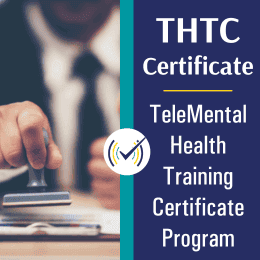ACA Code of Ethics, H2, a & c, referenced by OAR 833-100-0011 Required to follow the guidelines presented in the resource above “Standard 2.02: Services Requiring Licensure or Other Forms of Accreditation Social workers who provide electronic social work services shall comply with the laws and regulations that govern electronic social work services within both the jurisdiction in which the social worker is located and in which the client is located. Interpretation Social workers should be aware of all laws, regulations, and other rules that govern their work using technology, particularly license 13 laws. Most jurisdictions have adopted the position that electronic social work practice takes place in both the jurisdiction where the client is receiving such services (irrespective of the location of the practitioner) and in the jurisdiction where the social worker is licensed and located at the time of providing such electronic services (irrespective of the location of the client). If the client and social worker are in different jurisdictions, the social worker should be aware of and comply with the laws in both the jurisdiction where the social worker is located and where the client is located.” We are not aware of any specific rules and regulations of the practice of telemental health services for MFTs. We are not aware of any specific rules and regulations of the practice of telemental health services for Psychologists. We are not aware of any specific rules and regulations of the practice of telemental health services for Psychiatrists No reference found. We are not aware of any specific rules and regulations of the practice of telemental health services for Nurses. No reference found. Source: Behavior Health Services Rulebook, Div. 172, 410-172-0850 "10. For purposes of behavioral health services, the Authority shall provide coverage for telemedicine services to the same extent that the services would be covered if they were provided in person." Refer to the source provided for all requirements and limitations. Originating Site Reimbursement: We found no reference. Source: OR Revised Statutes Sec. 743A.058 "A health benefit plan must provide coverage of a health service that is provided using synchronous two-way interactive video conferencing if: (a)The plan provides coverage of the health service when provided in person by a health professional; (b)The health service is medically necessary; (c)The health service is determined to be safely and effectively provided using synchronous two-way interactive video conferencing according to generally accepted health care practices and standards; and (d)The application and technology used to provide the health service meet all standards required by state and federal laws governing the privacy and security of protected health information." Refer to the source provided for all requirements and limitations. We are not aware of any explicit payment parity. *Clinicians who have had an experience with telehealth reimbursement in this state are invited to share their experiences in the comments section below: a) type of service provided; b) insurance provider; c) payment parity, payment issues, or insurance requirements. We are not aware of any permission that allows for services delivered by out-of-state providers.Counselors
Social Workers
Marriage and Family Therapists
Psychologists
Psychiatrists
Oregon Professional Regulation/Health & Safety Online Prescribing
Nurses
Oregon Professional Regulation/Health & Safety Online Prescribing
Medicaid Telehealth Parity Law
Private Pay Telehealth Parity Law
Payment Parity
Permission for the Temporary Practice of Clinicians Licensed Outside the State
Oregon
Note: As this is a free resource and Rules and Regulations regarding Telehealth are always changing, we appreciate any updates or corrections. They can be emailed to us at [email protected] with a link to the source or a citation of the rule or regulation.
Telemental health is not a separate service from mental health services. All state licensing boards require that licensed clinicians follow all the regulations for practicing under their license no matter what medium of communication is used. All licensing boards also require that clinicians only practice within the boundaries of their competence. This usually requires education, continuing education, and/or supervision in telemental health. Complete our telehealth training program to cover all the essential competencies of providing telemental health services and earn the THTC (Telemental Health Training Certificate).




The course was so informative and I was glued to my screen for the entire duration. I received so much knowledge concerning ethics in telehealth and I am greatly encouraged to read about all the standards and policies that pertain to my practice. Thank you!.